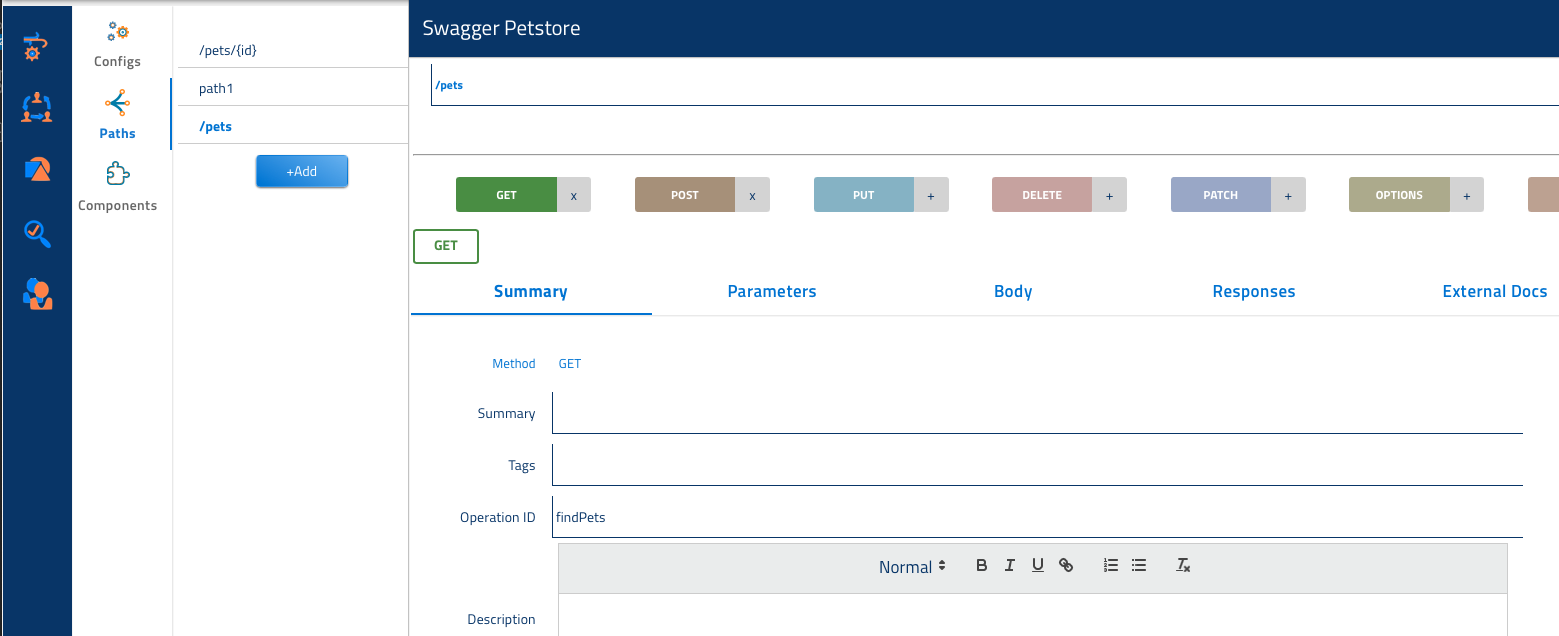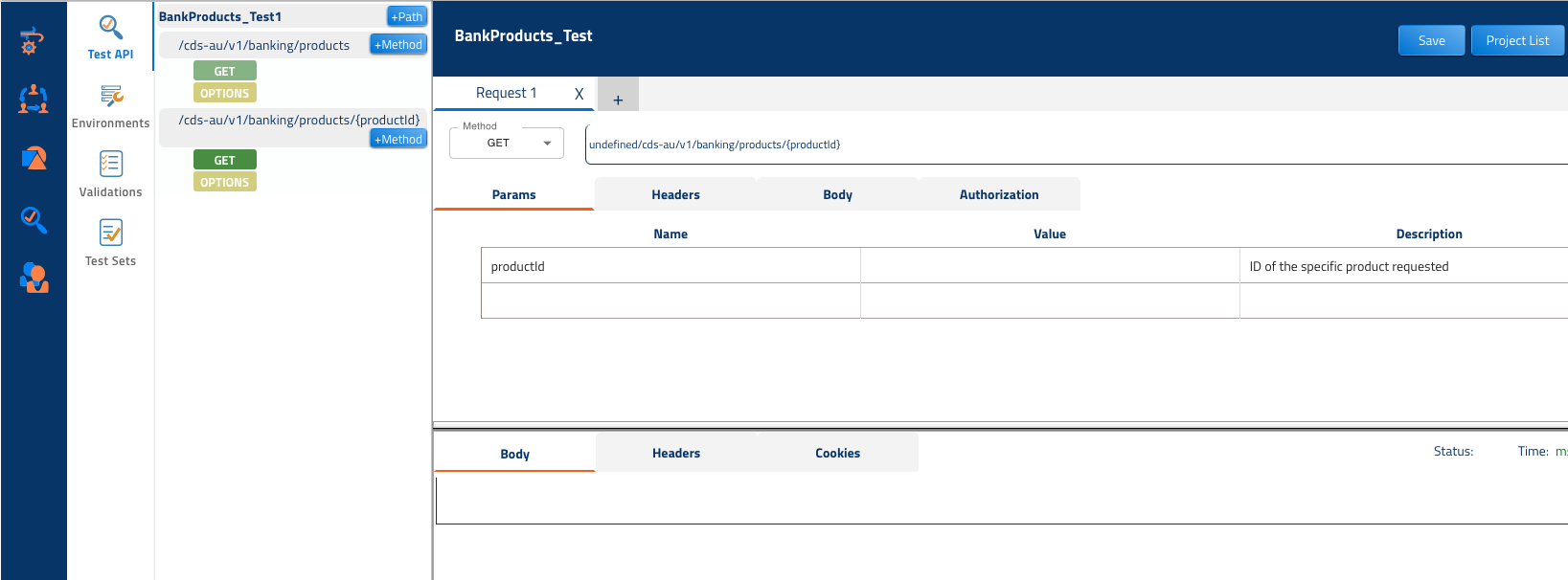Full LifeCycle APIs and Integration
Do everything for APIs and Integrations from a Single Platform, save significant time and costs







API Design Studio
Simple to use and intuitive platform to design and modify your APIs. If you have existing OpenAPI/Swagger specifications in json or yaml format, you can import them to create an API project. Alternatively, you can start with a blank project and design your APIs. The API specifications can be exported to json or yaml format anytime. It supports all the components from the OpenAPI specifications.
API Collaborator
API catalog to view API documentation of the APIs published on the platform. Create service virtualization by configuring mock data to generate responses based on the mock data setup. The client code to use APIs is also generated in various programming languages such as Java, JavaScript, Python, Go and C#. It gives a testing UI to test APIs which responds with mock data that is set for those APIs.
API Validator
Test APIs by specifying the required parts of the APIs such as headers, parameters, request body and any security required by APIs. The projects can be saved for later testing. The saved testing projects can be reused for multiple environments. Validations can also be created in the projects and saved for running tests later. The validations are done against the set expected response outputs from APIs in specific headers and/or fields in the body.
Access Manager
This is the component to manage various accesses on the Syvizo API platform. The administrator(s) can create, modify or remove users, groups, roles and access to assets such as projects from API Designer, API Validator, API Manager, Developer Portal, API products and mock data. The owners of the assets can also modify the access privileges to other users from relevant components of the platform.
Secrets Manager
Secrets Manager is used to store the passwords, secret keys and certifications that are required by any component on the platform such as database or connection passwords. To use the credentials, the user does not need to get access to them, instead, the corresponding secret key is required to be specified at the password or key field. The platform will get the value of the field from secrets manager at runtime.
Generate Code
The code generation is used to get the open source code for API client applications and for API server applications. The client side code is available in the collaborator at method level documentation. The server side API code in Java, Python and NodeJS can be generated in module "Development Projects".
Frequently Asked Questions
Question: I cannot find the inforamtion I am looking for. How can I get it?
Please contact us via clicking on "Contact" on the top menu of the page. Alternatively you can write us at "contact@syvizo.com" and we will be happy to provide you information you are looking for.
Question: Can I try this without being charged?
Yes, you can click on "Free Trial" button on the top menu of this page and give us brief information if you would like to try Open Runtime. The trial platform is then configured for you and is available for 15 days without any charges or need of a credit card.
Question: Can I use the components of platform with other software I already have?
Most of the platform components such as API Designer, API validator, API Collaborator, the generated code can be used seamlessly with other software and services.
Access Manager cannot be used with other products. Secrets Manager will need additional configurations to be used from other products.
Question: Can I use platform as on-premise software?
Yes, the platform is available to be deployed and run from our SaaS infrastructure, any cloud infrastructure and be deployed and run on-premise.
The on-premise deployment is availble for enterprise customers only.
Question: Can I use other products such as Open Studio or Open Runtime without platform?
No, the other Syvizo products cannot be used without platform. The platform provides common components and services such as Secrets Manager, User and Access Management etc. for the other products.
Question: Are the components in platform separately configured and/or charged?
No, the components that are part of the platform are not configured separately and are part of the platform.
The platform components are not charged separately. They are part of any plan a customer choses. The platform is cohesive set of components and hence it optimizes on productivity by generating code, tests and documentation format.
It makes faster to switch between various components using 'context switch' menu within the platform components.
Question: What can I use Syvizo Platform for?
You can use the Syvizo Platform to :
- Design APIs (create API specifications in Open API) format and Share API designs with teams,
- Create Service Virtualizations,
- Generate API consumer code and Initial API Provider code project,
- Test APIs and create regression tests,
- Manage Users on platform and keep credentials and certificates for your applications.